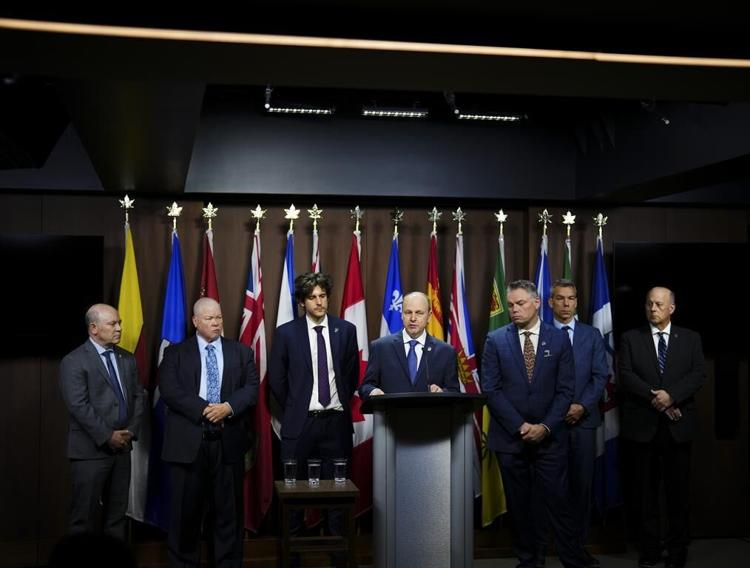
He is joined by fellow teamsters. THE CANADIAN PRESS/Sean Kilpatrick
Workers at Canada's two largest railways, Canadian National Railway Co. (CN) and Canadian Pacific Kansas City Ltd. (CPKC), have voted to authorize a strike if new contract agreements cannot be reached within three weeks. The Teamsters Canada Rail Conference reported that over 97% of the approximately 6,000 CN employees and 3,300 CPKC employees voted in favor of the strike mandate.
Paul Boucher, president of the union, expressed frustration with the lack of progress in negotiations after six months, accusing both companies of attempting to remove safety-critical rest provisions from collective agreements. He warned of the unprecedented disruption a simultaneous strike at CN and CPKC would cause to supply chains, emphasizing the need for an agreement that prioritizes workers over profits.
In response, CPKC asserted that its proposed contract options offer significant benefits to workers and do not compromise on safety. However, the company acknowledged the disruptive impact a strike would have on freight traffic across Canada and essential supply chains throughout North America, affecting trade between Canada, the U.S., and Mexico.
The potential strike could also impact commuters in Canada's major cities, including Toronto, Montreal, and Vancouver. Dispatchers responsible for directing passenger trains on CPKC-owned rails used by transit networks such as Toronto's GO Transit, Montreal's Exo line, and Vancouver's West Coast Express are among those considering striking. CPKC stated that these services would be unable to operate during a strike, although TransLink, the regional transportation authority in Metro Vancouver, does not anticipate any impact on the West Coast Express.
CN reiterated its commitment to reaching a mutually beneficial agreement that addresses work-life balance and productivity. Despite proposing solutions that would not affect duty-rest rules, the company claimed that the union rejected them. Contract negotiations are ongoing for CN workers, CPKC workers, and CPKC rail traffic controllers.
The strike authorization vote, with over 91% turnout, means conductors, engineers, yard workers, and dispatchers could begin striking as early as May 22, following a mandatory federal mediation period starting Wednesday.
Both the union and management accused each other of inflexibility during bargaining sessions. Boucher criticized the lack of engagement from the companies, while CN claimed the union had made few concessions towards a negotiated agreement and remained unclear on its demands.
CN expressed skepticism about the possibility of reaching a deal before a potential labor disruption, highlighting concerns about its impact on the Canadian supply chain and the North American economy. However, CN reached a three-year collective agreement with 2,500 track and bridge employees, a fraction of the United Steelworkers' Canadian membership.
Meanwhile, tense negotiations between Montreal port employers and the union representing dockworkers have raised fears of another possible strike this spring. Longshore workers rejected a management offer last week, voting overwhelmingly against the proposed deal.















